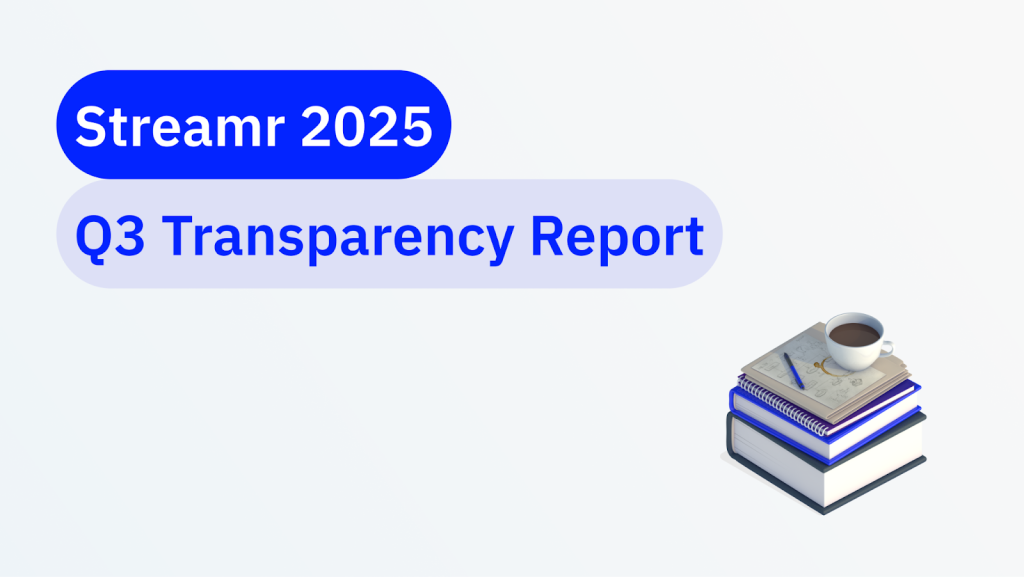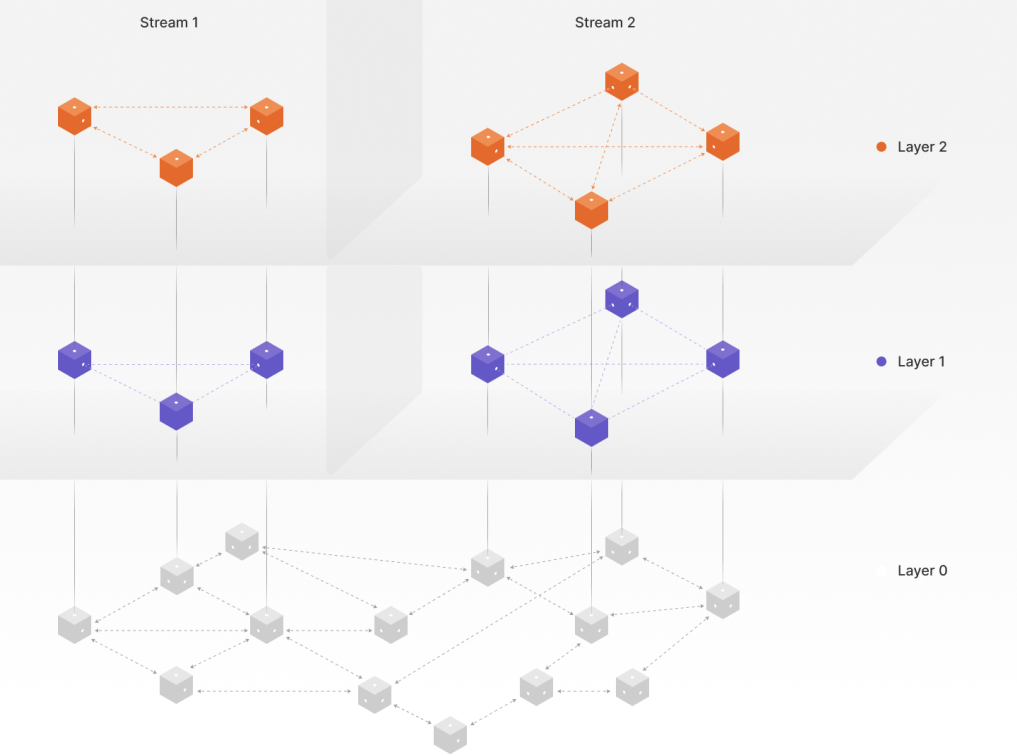The Q2 round of the Streamr governance voting has come to a successful end and voting has now closed. Let’s take a look at what’s been happening.
Several Streamr Improvement Proposals (SIPs) were put forward over the last couple of weeks:
- SIP-3 proposed the launch of a DAO and UNION token for the Data Union framework
- SIP-4 proposed that the Streamr community has the ability to make proposals
- SIP-5 proposed to create a pool of mining rewards for Brubeck testnets
- SIP-6 proposed raising a long-term fund for Streamr.
You can read about SIP-3 here and SIPs 4, 5 and 6 here.
The vote went live on Snapshot on Monday the 17th of May and ended on Monday the 24th. While some of the SIPs – such as SIP-4 and SIP-5 – were fairly straightforward, others sparked some debate within the community. Ahead of the voting, all of the SIPs were discussed on Discord, in dedicated channels and on the #governance channel, and community questions were also answered during Henri’s dedicated AMA.
SIP-3, the concept of developing a DAO and a new token for Data Unions, was particularly polarising. One concerned community member wrote: “The risk going forward is a serious one and after the previous SIP on the hard cap change to 2 billion, I see this as further dilution. A DAO separate from Streamr might have different goals and incentives, such as pushing for having UNION as a payment token for the Data Unions, thus discounting the value of DATA.” Another community member, on the other hand, saw an opportunity, writing: “We can add a new token to the Streamr DAO and use the funds to make a new full department for the Marketplace and Data Unions. Boosting all things related to the end-user (data providers and data buyers) and to dApp developers.”
Despite the fierce debate, an overwhelming majority, 97.53% of voting power, was in favour of the proposal. While the vast majority of votes was in favour of the proposal, the exact supply allocation between the Data Union DAO and DATA holders divided votes. Of the 3 splits proposed, the 60/40 split emerged as the winner, gathering 60.45% of all voting power. This decision allocates 40% of the UNION supply to be distributed to DATA holders, while leaving 60% to enable the DAO to carry out its operations.
SIP-4 passed with 100% of votes in favor of the proposal. This result is less surprising, considering the relatively lower risk associated with this SIP. It’s great to see that the community wishes to take an even more active role in governance and we’re excited to see the community empowered to make proposals.

When it comes to SIP-5, creating a pool of mining rewards for the Brubeck testnet, the community appeared to understand the benefits of minting additional tokens to support the project’s move towards decentralization. This vote also passed with 100% of votes in favor of the proposal.
SIP-6 was another polarising proposal. Community members expressed concern about token dilution, whereas others looked upon the long-term fund proposal as a value-adding component for the project and other projects like Streamr, ensuring longevity beyond ICO funding. Decisively, 95.14% of votes were in favour of the proposal.
Looking at Q2 governance voting on the whole, an average of 47M worth of the DATA supply participated in the vote. The Streamr Network AG treasury abstained from voting this time around, removing 106.5M DATA worth of voting power, and ensuring these SIPs are fully decided upon by the community. Removing the company vote from the Q1 governance results, which took place in February, we see that the first round of governance voting had an average supply of 33M. So there has been a solid increase in participation, with around 14M more DATA staked on SIPs 3-6. We’re happy to see this increase in participation and look forward to more DATA holders getting involved in governance voting to shape the future of the project.
Next steps
Based on these results, all Streamr Improvement Proposals will be taken on by the team and pushed forward as follows:
SIP-3 is a large undertaking and this will involve many steps to empower the Data Union DAO. The next steps are to rally up Data Unions stakeholders, create the token contract, establish a voting space for the DAO, plan the airdrop process in detail, establish an independent online presence for the Data Union framework and DAO, and in due course, submit the first proposals for the UNION DAO! The DAO is expected to kick off its operations in the second half of this year.

SIP-4 will be the simplest proposal to implement. A pull request to the Snapshot tool will be submitted in the near future, and once accepted by the Snapshot team, community proposals will be enabled. It will be exciting to see what proposals submitted by the community will gain enough traction to be promoted to the official round of governance voting in Q3.
Implementing SIP-5, minting tokens for Brubeck testnet rewards, will take place ahead of the Brubeck launch later this year. The supply will be distributed to those who successfully run nodes in the Brubeck testnets leading up to the milestone release. All the details about how to participate in the testnets will be available over the summer, with the first public testnets likely to launch after the holiday periods in the late summer.
Now that SIP-6 has passed, the team is happy to accept the mandate, but will hold back on making any funding arrangements until the current market volatility has settled. Under the current market conditions, we feel that raising the additional funding is not particularly attractive. For SIP-6 to reach its goal of raising around $20M over the years 2021 and 2022, the token price would ideally return to the $0.15 – $0.25 range. As the project has sufficient funding left from the original token launch, there is no particular urgency to enacting SIP-6, and the team prefers to wait out the current storm in the crypto markets.
Thank you to all of you who participated. We look forward to the next round of governance voting!











